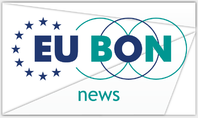
The second EU BON Roundtable took place on 27 November 2014 at the Museum für Naturkunde in Berlin. The workshop was dedicated to explore ways in which EU BON can support citizen science (CS) activities. EU BON is building a large integrated biodiversity information infrastructure in order to serve science, policy and administration as well as citizen scientists. Citizen scientists are important stakeholders, as they support the increase of knowledge in various aspects, they may debate research questions, most often they collect data, and they may interpret data and publish their results.
Many partners and interested stakeholders participated, coming from different European research institutions, Natural History Museums, SMEs or representatives from European Institutions like European Commission DG Research & Innovation, the European Environmental Agency or the JRC and EU-funded Citizen Science projects.
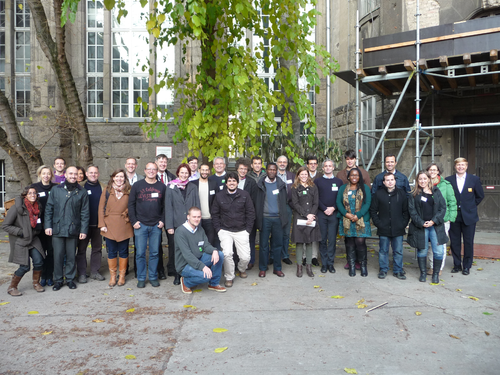
Participants at the 2nd EU BON Stakeholder Roundtable
The Citizen Science Roundtable started with a "Setting the scene" session where a welcome address was given by Katrin Vohland from the Museum für Naturkunde (MfN). In a brief introduction from a biodiversity data perspective, some gaps in current bio-diversity data were shown, for example the large data gaps in Eastern European data in plant datasets and the restricted access to many datasets. Christoph Häuser from the MfN outlined EU BON and its main activities in the field of Citizen Science.
As a representative from DG Research and Innovation from the European Commission, Jose-Miguel Rubio-Iglesias showed the possibilities of Citizen Science as one option to improve the science-society bridge. Lucy Robinson (ECSA/NHM London) focused on citizen science in Europe, its impact and development.
The next session targeted the question of how EU BON can possibly support data mobilization of and for citizen scientists. Antonio García Camacho from CSIC Donana showed, with a colleague from IBM, the prototype of the future EU BON data portal, to integrate biodiversity data/metadata sources into a single user interface. In another talk, Jaume Piera pointed out the requirements that exist in a CS portal, e.g. with regards to the role of citizen collaboration, the social media channels, and particularly the conceptual requirements. Important aspects here are for example that data access tracking has to be guaranteed, for giving credits to data producers and for keeping track of data use. Simao Belchior of the SME Simbiotica showed successful ways of visualizing georeferenced data, e.g. the mapping of pan-tropical forest clearing.
The next session called "A spotlight on some (meta)data provider" was started by Veljo Runnel who presented an assessment of Citizen Science involvement in biological research. Nils Valland described in his talk key success factors for citizen science and species occurrence data in Europe. Dirk Schmeller informed the audience about Volunteer Species Monitoring in Europe. He pointed out the need that governments should invest more to support and expand current monitoring initiatives. For example the EuMon project had documented 395 monitoring schemes for species, which represents a total annual cost of about €4 million, involving more than 46,000 persons devoting over 148,000 person-days/year to biodiversity monitoring activities.
In the "Synergies of European Citizen Science projects" session, presentations outlined of the main aims of several EU funded Citizen science projects (Citclops, COBWEB, Socientize). Pierre-Philippe Mathieu from the European Space Agency highlighted the new era for Earth Observation and links to Citizen Science projects. Siro Masinde from showed the Citizen Science activities of GBIF, which is one of the largest data providers of species occurrence records.
For more detailed information on the issues discussed, please see below the presentations from the meeting or contact us:
Dr. Katrin Vohland ( katrin.vohland@mfn-berlin.de)
Dr. Florian Wetzel (florian.wetzel@mfn-berlin.de)
PRESENTATIONS
1.Rubio-Iglesias - Citizen Science as science-society bridge
3. Robinson - Citizen science in Europe
4. Camacho - EU BON biodiversity portal
5. Piera - Requirements for the EU BON biodiversity
6. Belchior - Fall of data portals and future of data workflows
7. Runnel - Assessing Citizen Schience involvement
8. Arvanitidis - Crowdsourcing initiatives in the Mediterranean Basin
9. Valland - Key success factors of citizen science
10. Schmeller - Volunteer Species Monitoring
11. Mathieu - Crowd Sourcing for Space Science
15. Masinde - GBIF, plans for integrating Citizen Science data
Selection of pictures from the meeting:
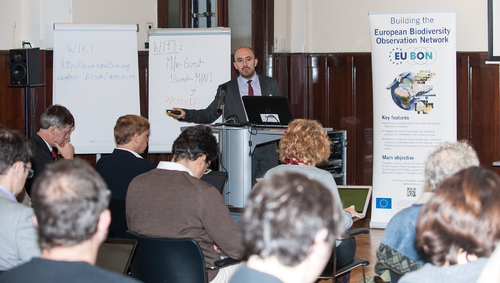
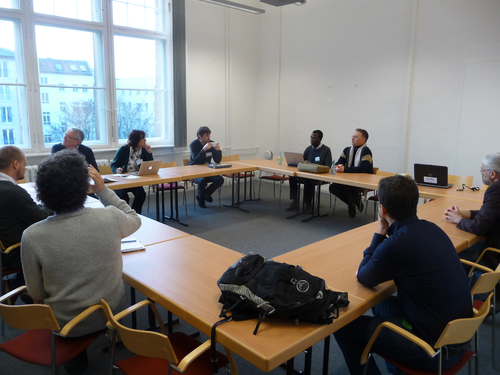
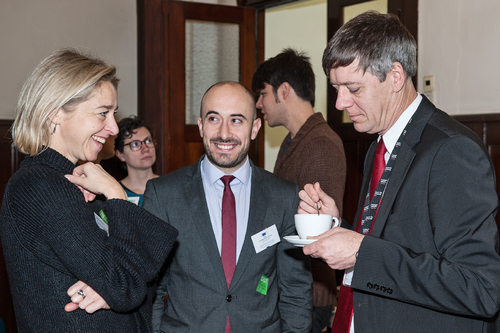
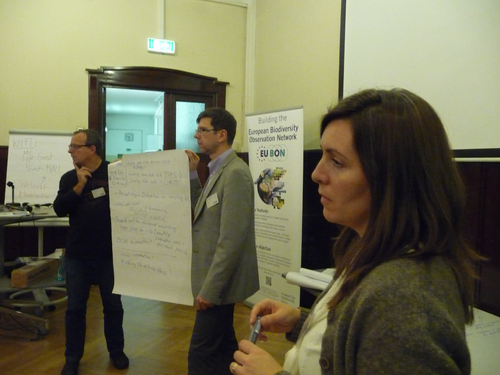
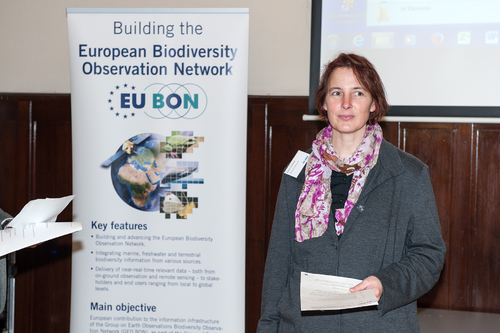




 RSS news
RSS news Print this article
Print this article
